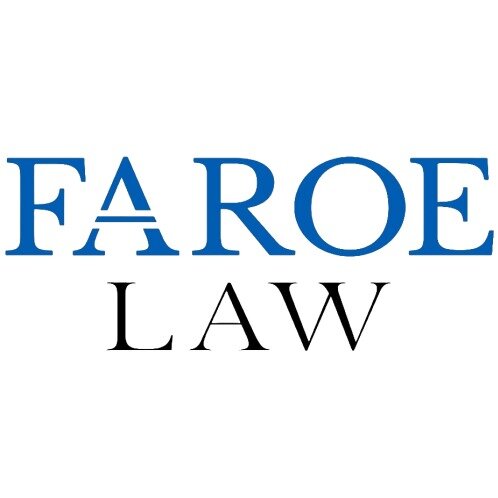Best Private Equity Lawyers in Faroe Islands
Share your needs with us, get contacted by law firms.
Free. Takes 2 min.
Or refine your search by selecting a city:
List of the best lawyers in Faroe Islands
About Private Equity Law in Faroe Islands
Private equity in the Faroe Islands refers to investment funds and strategies that invest directly in private companies or engage in buyouts of public companies, resulting in their delisting from public stock exchanges. Although the Faroe Islands is a self-governing territory within the Kingdom of Denmark, its legal and regulatory frameworks are unique in certain aspects. Private equity activities are governed by a combination of local Faroese legislation as well as Danish and European Union influences where applicable. The sector here remains relatively small compared to larger international markets, but it is emerging as an attractive environment for investments due to the islands’ stable economy and investor-friendly policies. Legal expertise is often necessary to navigate both local regulations and the complexities inherent in private equity transactions.
Why You May Need a Lawyer
Entering the world of private equity, whether as an investor, business owner, or corporate advisor, often involves complex legal steps and financial structures. You may need a lawyer in the following scenarios:
- Structuring private equity funds or investment vehicles tailored to Faroese laws
- Negotiating and drafting investment agreements, shareholder agreements, or partnership documents
- Conducting due diligence on target companies or startups in the Faroe Islands
- Ensuring compliance with regulatory requirements such as anti-money laundering laws
- Advising on cross-border investments and potential tax obligations
- Protecting minority or majority shareholder rights during transactions
- Managing exits, including sales, public offerings, or liquidation events
- Resolving disputes among parties involved in private equity ventures
Legal professionals play a crucial role in safeguarding your interests and ensuring investments proceed smoothly.
Local Laws Overview
Private equity transactions in the Faroe Islands are regulated by a blend of local, Danish, and certain European legislation. Key legal aspects include:
- Company Law - The Faroese Companies Act outlines the rules for forming, managing, and dissolving companies, including private limited companies and partnerships, which are common structures for private equity activity.
- Financial Regulation - The Faroese Financial Supervisory Authority (FSA) oversees compliance with financial regulations, including promotion of financial stability and anti-money laundering requirements.
- Foreign Investment Rules - Foreign investors may face certain restrictions or notification requirements, depending on the sector involved and national interest considerations.
- Taxation - Specific tax treaties, corporate tax rates, and withholding taxes may apply to private equity transactions, requiring careful structuring for tax efficiency.
- Contract and Securities Law - These laws govern the validity and enforceability of private equity agreements, share transfers, and security interests.
- Employment and Labor Law - Buyouts and restructuring may invoke employment law considerations, especially for employee contracts and obligations.
These legal frameworks are complemented by Danish and, occasionally, EU regulations, making it essential to have expert legal guidance for private equity matters in the Faroe Islands.
Frequently Asked Questions
What is private equity?
Private equity refers to investing in private companies or taking over public companies to make them private, with the intention of improving value and eventually selling the investment at a profit.
Are there restrictions on foreign investments in the Faroe Islands?
There can be restrictions or notification requirements on foreign acquisitions, especially in sectors related to national interest or critical infrastructure. Expert advice is needed to determine any limitations for your specific situation.
How do tax laws in the Faroe Islands affect private equity investments?
The Faroe Islands have their own corporate tax regulations, and investors may also be subject to withholding taxes or benefit from double taxation treaties. Proper structuring is crucial for tax efficiency.
What types of company structures are common for private equity?
Private limited companies and various forms of partnerships are the most frequently used vehicles for private equity investments due to their operational flexibility and suitability for multiple investors.
Is it necessary to perform due diligence before investing in a Faroese company?
Yes, comprehensive due diligence is critical to assess financial, legal, and operational risks, and to confirm regulatory compliance before proceeding with any private equity investment.
What role does the Faroese Financial Supervisory Authority play in private equity?
The FSA supervises financial markets, ensures compliance with anti-money laundering regulations, and may require licensing or notifications for certain investment activities.
Can private equity funds be established in the Faroe Islands?
Yes, private equity funds can be established, but they must comply with local company law and any applicable registration, licensing, and reporting requirements.
What should be included in a private equity investment agreement?
Key elements typically include terms of investment, governance rights, exit provisions, dispute resolution mechanisms, and any special agreements regarding control or profit sharing.
Are there industry-specific considerations for private equity in the Faroe Islands?
Yes, sectors like fisheries, energy, and infrastructure may have additional regulatory requirements or restrictions on foreign ownership due to their strategic importance.
Do I need to hire a lawyer based in the Faroe Islands, or is Danish legal counsel sufficient?
While Danish counsel may be familiar with related laws, it is highly recommended to engage a legal advisor with specific expertise in Faroese law, due to local legislative nuances and regulatory practices.
Additional Resources
To learn more or seek assistance, consider the following local resources:
- Faroese Financial Supervisory Authority (FSA) - Regulates financial markets and investment activities
- Faroese Trade and Industry Ministry - Provides information on business regulations and investment incentives
- Local and international law firms with offices or expertise in the Faroe Islands
- Regional business chambers and investment promotion agencies
- Public registries for company and real estate information
Consulting these organizations, either directly or through your legal advisor, can offer valuable guidance for your private equity activities.
Next Steps
If you are considering a private equity investment or transaction in the Faroe Islands, follow these steps:
- Define your objectives, budget, and desired structure for the investment
- Identify potential target companies or sectors of interest
- Engage a local legal expert with knowledge of Faroese private equity laws and regulations
- Conduct thorough due diligence and risk analysis of potential investments
- Work with your lawyer to draft and negotiate all required agreements and ensure regulatory compliance
- Coordinate with relevant local authorities or regulatory bodies as needed
- Plan your exit strategy and ensure it aligns with local legal requirements
Taking these steps with professional legal support will help you maximize your chances of a successful and compliant private equity venture in the Faroe Islands.
Lawzana helps you find the best lawyers and law firms in Faroe Islands through a curated and pre-screened list of qualified legal professionals. Our platform offers rankings and detailed profiles of attorneys and law firms, allowing you to compare based on practice areas, including Private Equity, experience, and client feedback.
Each profile includes a description of the firm's areas of practice, client reviews, team members and partners, year of establishment, spoken languages, office locations, contact information, social media presence, and any published articles or resources. Most firms on our platform speak English and are experienced in both local and international legal matters.
Get a quote from top-rated law firms in Faroe Islands — quickly, securely, and without unnecessary hassle.
Disclaimer:
The information provided on this page is for general informational purposes only and does not constitute legal advice. While we strive to ensure the accuracy and relevance of the content, legal information may change over time, and interpretations of the law can vary. You should always consult with a qualified legal professional for advice specific to your situation.
We disclaim all liability for actions taken or not taken based on the content of this page. If you believe any information is incorrect or outdated, please contact us, and we will review and update it where appropriate.
Browse private equity law firms by city in Faroe Islands
Refine your search by selecting a city.














